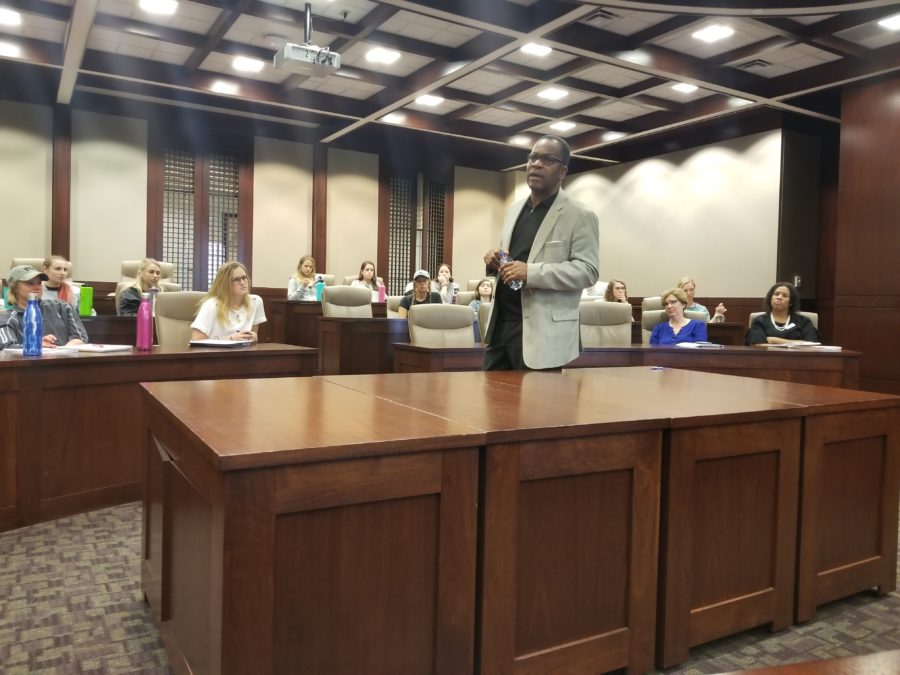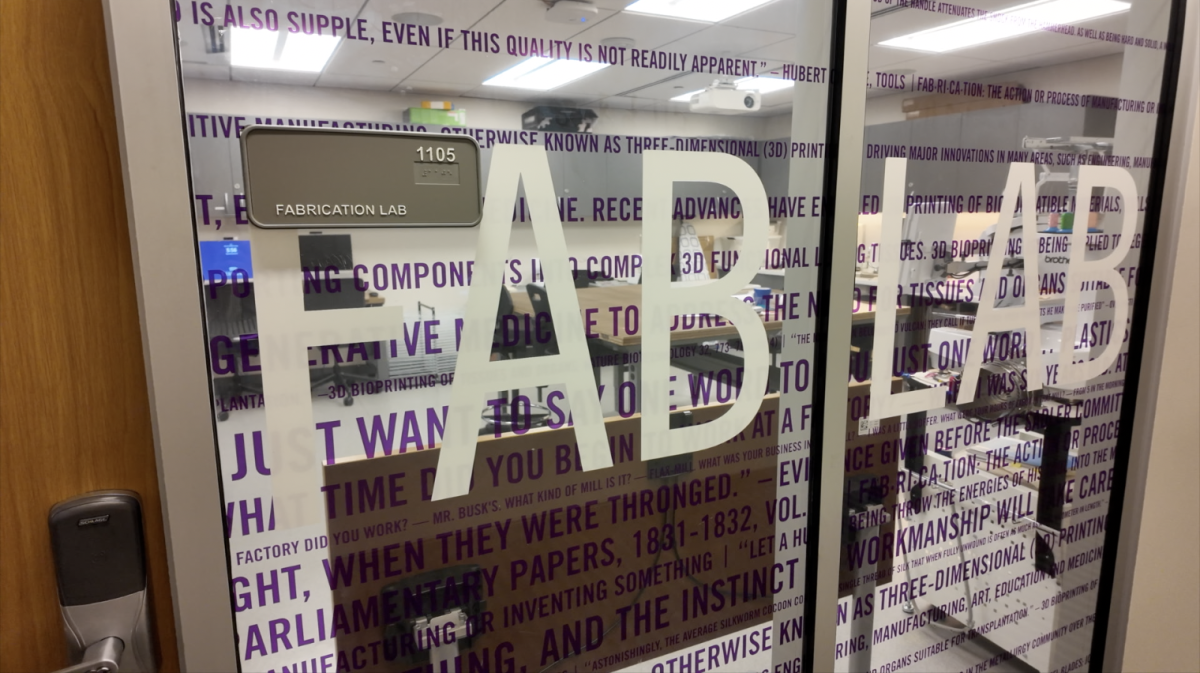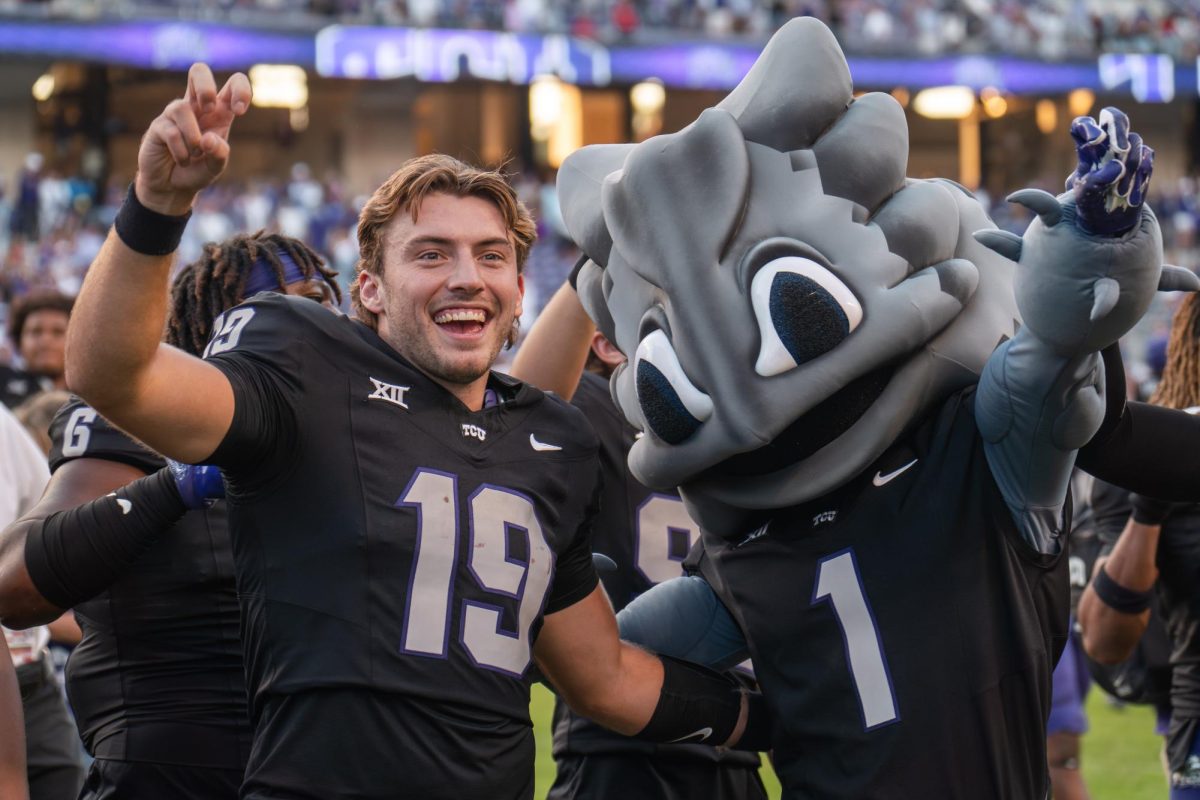Senior writer Michael Fletcher at The Undefeated, “ESPN’s platform for exploring the intersections of race, sports, and culture,” shared his perspective on the recent 30th anniversary Nike campaign ad featuring former NFL quarterback, Colin Kaepernick. During his visit as a guest to the John V. Roach Honors College, he spoke in the studio with TCU360 about the role of journalists and how viewers should approach media regarding the Nike advertisement and the nature of the protests that started the controversy. Back in 2016, Kaepernick began kneeling during the national anthem at NFL games as a way to protest the social injustices and police brutality being experienced by people of color. He has since been ostracized from the league and has been participating in activism.
Believe in something, even if it means sacrificing everything. #JustDoIt pic.twitter.com/SRWkMIDdaO
— Colin Kaepernick (@Kaepernick7) September 3, 2018
“Our responsibility in the press is to try to go a layer deeper,” Fletcher said. “Often times we use the term ‘social injustice’ and we don’t go further. We don’t really get to ‘what does that mean to you?'” Injustice, Fletcher said, has lasted in the world and in America as long as time, and a topic like the protest presents an opportunity for the media and journalists to interrogate the issue in an attempt to establish a baseline of facts and reflect different and opposing perspectives accurately. “We need to understand the history of civil rights,” Fletcher said. “When I try to write about these issues, I try to reflect the incredible progress that we’ve seen in this country while at the same time, reflect the long way we still have to go.” This is why he thinks it was such a big deal that President Trump got involved, giving his input at a 2017 rally famously saying “get that SOB off the field right now.” “I think the president has misframed it,” he said. “It’s become kind of the dominant narrative in the country that somehow people kneeling during the national anthem is a disrespectful act when the president has said that and a lot of people now believe that – even though it’s not intended that way.” Fletcher considers this moment to be where a lot of people forgot what the protest was all about, leading many people to take an aggressive stance on both sides without a proper understanding of the issue. “The idea isn’t just to kneel because it makes everyone uncomfortable, the idea is to kneel to bring attention to a problem that you feel is not being addressed urgently enough,” Fletcher said. “But now people forget why this all started.” Fletcher said it is this narrative that gives power to individuals on both sides to go against each other so passionately and aggressively, often using very hateful language toward each other. “You have this heightened moment in America because you have a president who rightfully or wrongly stokes racial passions on both sides and people seem free to express negative views about one another,” Fletcher said. Regarding of how the ad is politically received by viewers, Fletcher believes the campaign itself is just another way Nike sought to capitalize on making more sells. “Nike likes that kind of badge, if you will, with a little bit of edginess in their ad campaigns,” he said. “This is what Nike is in the business of – a ploy to sell sneakers and sporting goods.”










